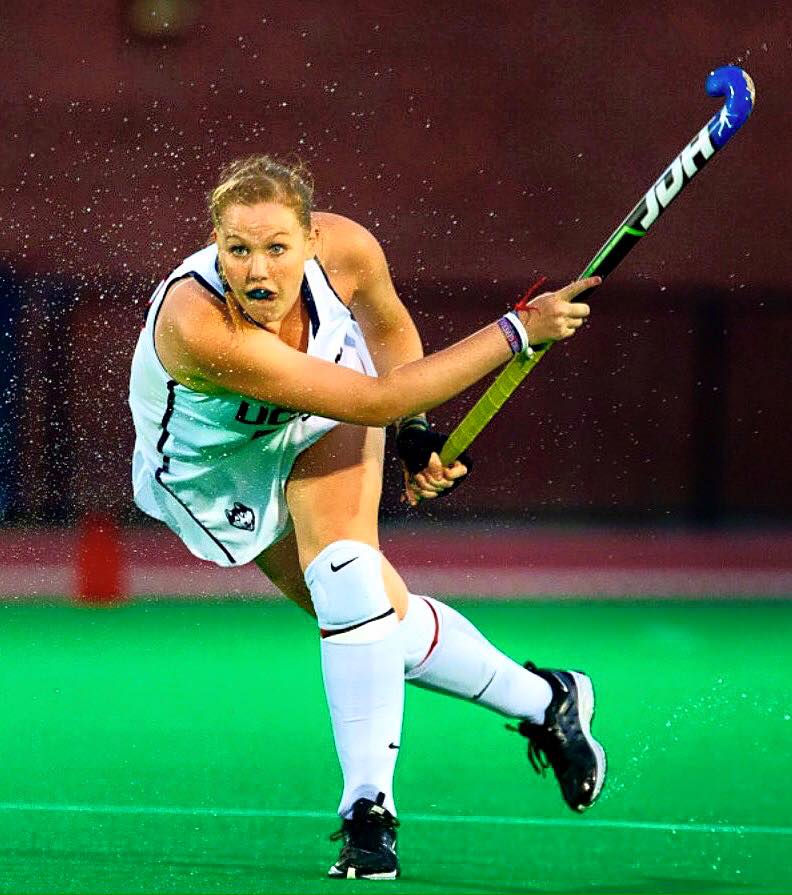Get Inspired by Anna Middendorf, College Student and Intrapreneur

What can professional intrapreneurs learn from today’s college students? We think a lot. Launching a passion project within an organization takes guts -- and it doesn’t matter if it takes place on campus or in the office. For our Climate Disruptors series, we’re highlighting the lessons learned from students who have spearheaded sustainability success at school, showing that you can make change from any position.
Anna Middendorf is a rising senior and Division 1 field hockey player at the University of Connecticut (UConn). Over the past three years, she has competed across the country with her team and coaches. In August 2015, Anna had an ‘aha’ moment that led her to start her intrapreneurial efforts for sustainability in university athletics -- introducing better recycling at games, raising awareness for green themes and finding allies along the way. In this process, she faced a lot of challenges and resistance, but ultimately came out a stronger champion for change.
Why did you first decide to take action on sustainability?

Despite all this, I saw very little sustainable awareness within the athletic department. The recycling at games, whether at a large event or a small one, was poorly managed. Catering food waste for teams was far too high, and athletes’ involvement in sustainable advocacy was virtually nonexistent.
Were there any existing efforts underway to make athletics more sustainable?
The few Green Game Days of the year were organized by student-run organizations. But on the whole, the athletic department is shy to affiliate itself with any projects or discussions revolving around climate change, due to its “controversial” nature.
What was the most unexpected challenge you faced?
The recruitment of the right allies was a rocky process, though I began with a few fantastic peers from both inside and outside the athletic department who did not hesitate to get involved. What was more difficult was finding approval from the decision-makers of the athletic department. After I finally found the like-minded executives I had been looking for, unexpected role shifts and new personnel stood in my way to success.
After losing my most powerful allies, I was told to put my suggestions on hold, and I thought about calling it quits on more than one occasion.
How did you ultimately push through on your path forward?
I found in the end that the only way to succeed was to change my approach; I needed to go all the way to the top of the food chain sooner rather than later. I ended up running for a position on UConn’s executive board of the Student-Athlete Advisory Committee, giving me a proper link to the top. Now, detractors had to listen to what I had been saying for so long, especially after my peers on the board all agreed that this was a cause worth fighting for. Today, we are in the process of overhauling the complete recycling system of our facilities. We are working on a video from athletes for the entire student community, advocating for the change we want to see in our university.
What are some of the ingredients that lead to intrapreneurial success?
In my book, a successful intrapreneur needs to have a vision, be a team-player and not accept no for an answer. Growing up in a big family and having been on a field hockey team for most of my life, I think the team factor has always been my strongest suit. On top of that, I am just really passionate about this project. I genuinely believe in its timeliness and importance. I was never going to take no for an answer, because I couldn’t imagine graduating in less than a year from a place that I was not able to change for the better, at least minutely.
What advice would you give to someone launching their own project at work or school?
I have found again and again that passionate people are all that you really need in order to get a project going, more than financial support, expertise or anything else.
Bouncing ideas off one another and constantly re-imagining what is possible has been the driving force for any of the ideas we have come up with at UConn. A group of individuals voicing their opinions as one will always be more effective than one individual standing up alone.
Interested in making an Impact at Work? Visit our Climate Disruptors page to learn how.
